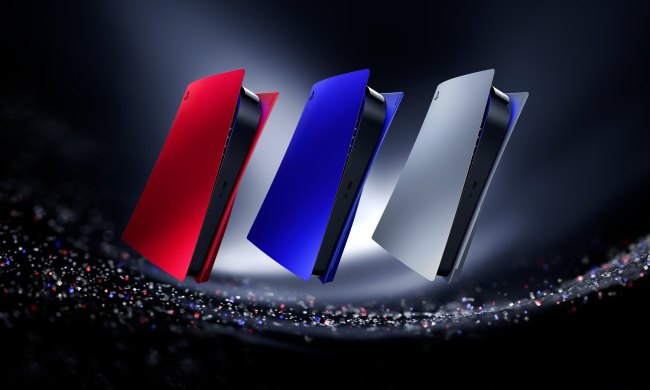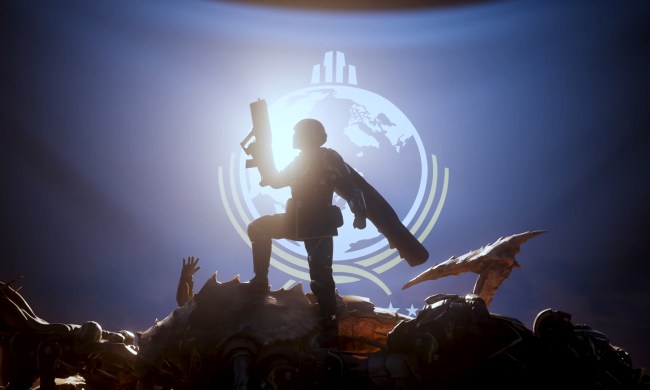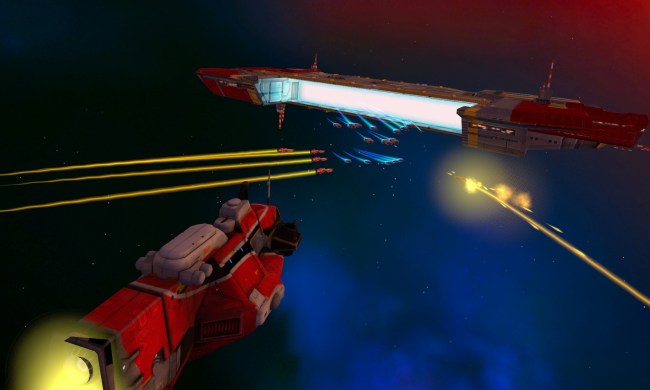Legendary game giant Atari is breaking into VR. This summer, the company will publish Pixel Ripped 1978, the third entry in the standout VR Pixel Ripped series. It will launch on PC and PlayStation 5 and be compatible with both PlayStation VR 2 and Meta Quest 2.
Pixel Ripped is a standout VR series that pays homage to classic game eras. They generally tell coming-of-age stories built around the changing tech of the time, tying pivotal moments in gaming’s growth to its young main characters. Previous installments have explored 1989 and 1995, but the new one is going back even further to explore 1978 — and that’s fitting considering Atari will publish it.
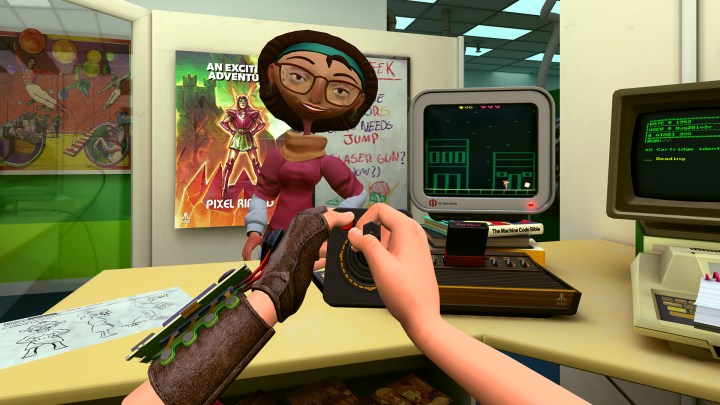
Rather than following a kid growing up with games, the story revolves around a woman named Bug, who’s working at Atari during the early days of the gaming industry. She’s tasked with creating and testing some of the company’s most iconic games. While players get to control classic games in VR (in a sort of game-within-a-game), Bug also has the power to jump into the game worlds themselves and debug them. It’s a meta narrative that celebrates Atari’s history through its classic games.
Digital Trends went hands-on with the game at this year’s Game Developers Conference. In the slice I played, I sat in Bug’s office playing a 2D side-scroller that drew inspiration from Atari classics like Pitfall! At certain points, I could warp into the game world, which put me in a pixelated, almost Minecraft-like space where I could shoot dragons with an arm blaster and solve puzzles that would in turn fix “bugs” in the game.
The final moments are what really get me excited. For a moment, I flash back to 1972 and sit in a living room playing Breakout on Atari’s old Video Pinball console. I clutch a recreation of its wheel controller to play on a TV in front of me. At one point, someone walks into the room and stops in front of the TV to talk to me, forcing me to crane my body around them to see the screen — just as I used to do as a kid when my parents would interrupt a game session. Those moments feel true to life, and the developers at Arvore note that there are plenty more moments like that in the full game.

While Atari isn’t developing the game itself (it’s being handled by Arvore), the adventure makes some direct references to the company’s past. Players will get to explore Atari’s headquarters in Sunnyvale, California, and find references to its catalog of classic games. Arvore CEO Ricardo Justus notes that the partnership has allowed the series to better pay off its nostalgic premise by actually drawing on real gaming history, rather than inventing its own version of it.
“We have always paid homage to our favorite games from the past in this series, but now, in Pixel Ripped 1978, thanks to our partnership with Atari, we can actually reference the fantastic games and consoles from that era,” Justus says in a press release. “I’m incredibly proud of what the team is creating and can’t wait to have fans and newcomers to the series alike be able to play it!”
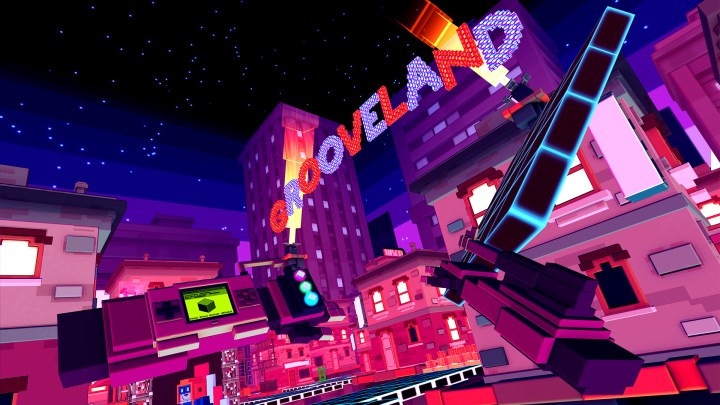
At GDC, the surprising story of how the collaboration came together was revealed. Arvore was already deep in development before partnering with Atari. At last year’s DICE summit, one of the members of Arvore accidentally bumped into the Atari team during the show and struck up a conversation about the project, asking if they could potentially license some IP for the game. Instead, Atari said it wanted to publish the project outright. According to the developers, the studio was just weeks away from revealing the game at that point and scrapped the announcement to spend an additional year of development time on it to deepen the Atari collaboration.
That decision seems to have paid off based on what I’ve played so far. There are a lot of little Easter eggs for game history buffs to pore over, and I’ve already caught tons of references to games like Frogger. With the game jumping back in time to dive deeper into Atari’s history, it seems like it’ll be a full celebration of the 1970s gaming scene recreated in VR.
Pixel Ripped 1978 launches this summer and will be compatible with both Meta Quest 2 and PSVR2.

